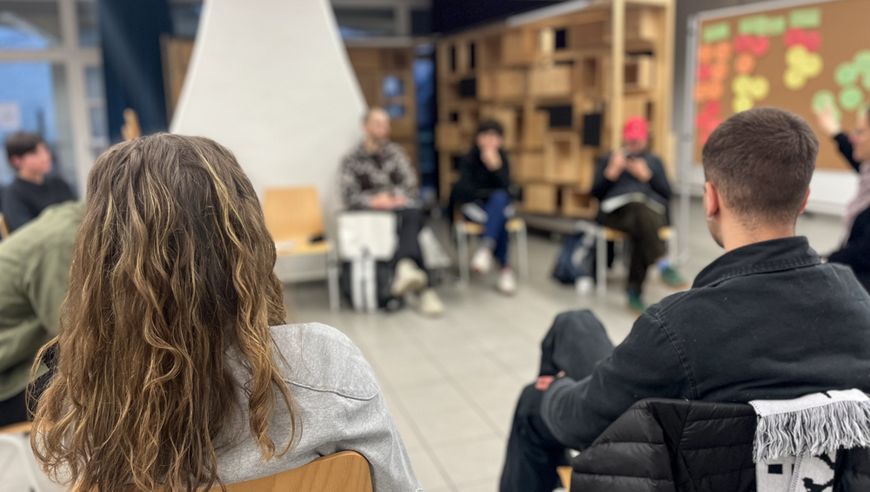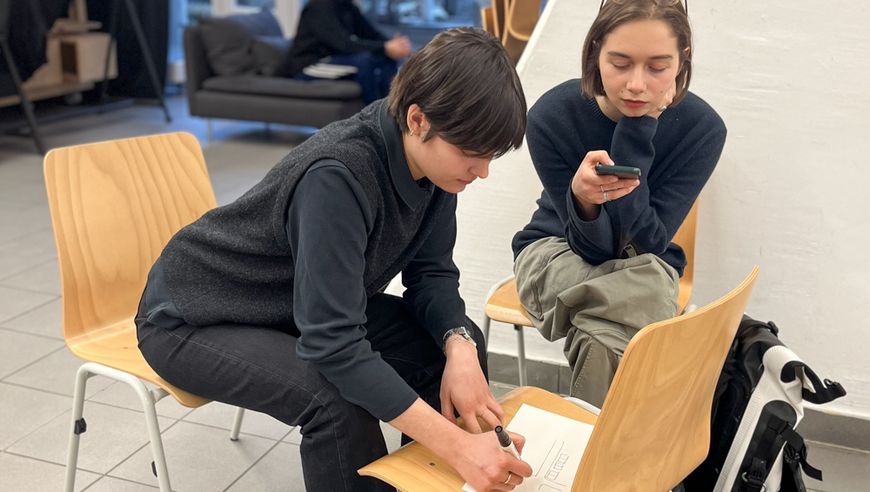The Collision Week at UdK Berlin, an interdisciplinary project week, took place from January 8th to 12th, 2024, allowing students and educators from various disciplines to collaborate on transdisciplinary projects. Participants "collided" with each other, exchanged expertise, and collectively created something new, a third entity. This week provided students with the opportunity to overcome creative boundaries and explore new perspectives within the overarching theme, "The Map is not a Territory." This concept expresses the idea that an abstract representation or portrayal (the map) can never fully capture the reality or complexity of the actual object (the territory). In the context of transmediality, "The Map is not a Territory" suggests that representing a subject in different media or disciplines is a simplification or interpretation that may capture only certain facets of the overall reality. It emphasizes the limitations and perspectives that may arise when transferring information from one medium to another. Therefore, it is crucial to recognize that every artistic representation, whether in images, sounds, texts, or other media, represents a specific facet of reality and not reality itself. The results of the projects were presented in a concluding exhibition, providing insights into transdisciplinary collaboration and artistic innovations.
At the beginning of the week, Michael Fowler and Anne Kurr introduced students to the topic of transmediality. Guided by Dr. Lina Nikou, an improvisational dancer and cultural anthropologist, group improvisations aimed to bring students closer together and connect with people from different disciplines. Group interviews were conducted to find a common theme for new projects. On the second day, "Auditory Spatial Imaginaries" took center stage, presented by Prof. Dr. Salome Voegelin (UAL). Sound was emphasized as a more authentic representation of reality, sparking discussions on the perception of sound in different contexts. Voegelin took an innovative approach, highlighting that sound can represent a truer reality than traditional maps or territories. On the third day, examples of artists who transmediated images and objects into sound were presented. Students began developing their projects during Collision Week. One group worked on integrating interviews into their projects, incorporating room acoustics in a sound mapping process. The interviews addressed artistic crises, and the group planned to visually sketch the space. Another group developed a sound from profound interview fragments to better portray emotional nuances. A third group combined interviews about home and childhood with drawings, aiming to transform these elements into a meaningful map. In another group, interviews on the theme of "Not-being-there-anymore" were visually depicted. After transcription with software, the visual representation of the interviews as a overarching map was the goal. The following day, a brief plenum took place where students presented their project ideas and discussed progress. Throughout the day, students continued working on their ideas and projects to prepare for the presentation day. The concluding exhibition during Collision Week 2024 showcased fascinating projects developed in the context of transmediality and the theme "The Map is not a Territory." The event provided a relaxed setting for the exchange between students from different disciplines. Results from workshops, including "Family Collision," "Childhood Mapping," and "Untitled" by Antonia Döß and Lea Deutsche, were presented in the Uferhallen of the HZT. Additionally, the project "Wo bist du gar nicht mehr" was introduced, exploring youth and personal connections to specific locations. Students presented their works in an engaging format, leading to lively exchanges with visitors from various university areas. Creative approaches in transmediation, personal experiences, and the diversity of themes were evident. In the audience's perception, the exhibition was regarded as interesting, inspiring, and personal. Visitors particularly appreciated interactive elements like the "Family Collision" project and the Transcribing Tool for communicating and reproducing childhood trauma. Overall, Collision Week was perceived as stimulating and enriching for participants.


